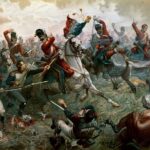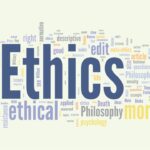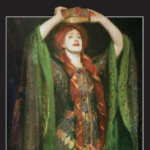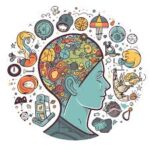Peruse this page to see which courses you are most interested in.
Then click HERE to go to the registration page.
MONDAYS
Battles that Changed the Course of History Part II with Fred Stein
Mondays, 9:00 – 10:00 AM
Sun City Social Center Ballroom
In-person, On-demand
Decisive battles are those that literally change the course of history either by destroying an empire or by creating the conditions for a major cultural change. Building on those discussed in Part I last fall, Fred will explore 6 more significant battles spanning from the U.S. Civil war battles of the Shenandoah Valley & Antietam to the current Ukrainian/Russian war, specifically covering the WWI battle of the Marne, WWII battles of Midway & Berlin and the 1948 & 1967 Israeli conflicts. As time allows, Fred will also update the class on current developments in the Russia-Ukraine and Israeli-Hamas wars.
COL (ret) Fred Stein served 27 years active-duty Army and commanded at all levels from company through brigade. He served in multiple staff positions including Senior Communications staff, J6, for Operation Support Hope in Rwanda and Operation Enduring Freedom in Bosnia. He was a distinguished Net Centric Engineer for 18 years and co-authored the book “Network Centric Warfare”. He is a member of the Swedish National Defense Board – US Army General Officer, Keynote Speaker at numerous International Conferences on Networking, and has taught LLGTX courses on the Ukraine war, Revolutions in Military Affairs and Information and Disinformation.
Pirates – A History of Piracy in Fact and Fiction with Clark Wernecke, PhD
Mondays, 10:30 – 11:30 AM
Sun City Ballroom
In Person, On-Demand
Bernard Williams, an English philosopher, said “The average man will bristle if you say his father was dishonest, but he will brag a little if he discovers that his great- grandfather was a pirate.” The golden age of piracy, the 17th and 18th centuries, has long been a source of entertainment in books, films, and TV series. This class will take you on a voyage through piracy fact and fiction beginning with piracy in antiquity on up to modern day piracy addressing some of the personalities involved and where some of our fondest legends come from.
Clark Wernecke is the retired Project Director for the Prehistory Research Project at the University of Texas at Austin and Executive Director of the Gault School of Archaeological Research, a nonprofit dedicated to research regarding the earliest peoples in the Americas. Dr. Wernecke started his academic career with a degree in history from SMU followed by an MBA from Northwestern University, an M.A. in Anthropology from Florida Atlantic, and a PhD from the University of Texas at Austin.
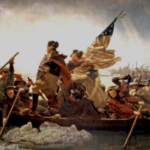 What IFs in American History with Ken Peters, PhD
What IFs in American History with Ken Peters, PhD
Mondays, 1:30 – 2:30 PM
Georgetown Public Library Hewlett Room
In Person
What would have happened if the French had won the French and Indian War? If Texas had not been annexed and remained independent? If Lincoln had not been assassinated or the assassination attempt against Lincoln and his cabinet had been completely successful? Should the United States have joined the League of Nations and would it have prevented World War II? What if the Japanese had not bombed Pearl Harbor? All these were very real possibilities, and they are some of the questions that will be discussed.
Ken Peters grew up near Georgetown, in Copperas Cove, Texas, and received his B.A. degree from Southwestern University. He did graduate work at the University of Texas, obtaining MA and PhD degrees, and later taught American history at Texas A&M. In 1980 he began his second career in the Presbyterian ministry, earning the M.Div. degree from Austin Presbyterian Seminary and retired from New Braunfels Presbyterian Church. Dr. Peters is excited about coming back to Lifelong Learners GTX!
 America Going to the Moon and Mars – How and When with Hank Haliasz
America Going to the Moon and Mars – How and When with Hank Haliasz
Mondays, 2:45 – 3:45 PM
Georgetown Public Library Hewlett Room
In Person
Putting humans back on the Moon and then on Mars is a goal of NASA and SpaceX, but problems keep getting in the way. This class will update the status of these programs by focusing on several questions: Why should we do it? How will we do it? When will we do it? How is politics involved, and what role does China have in our decision-making? For those interested in making humanity a multi-planet species, this class will tell you if and how it can be done.
Henry Haliasz was a career Air Force space operations Mission Director, an executive Project Manager for IBM, and is the author of several novels including, “Martian Year 500: The Second Beginning,” and Mars II: A Tale of Two Planets.” He is a member of the Space Development Steering Committee, a space advocacy group. He has a twenty-year history presenting classes for Lifelong Learners GTX.
TUESDAYS
How AI Will Affect Our World As We Know It with James Paik and Fred Stein
Tuesdays, 9:00 – 10:00 AM
First Baptist, Room E 109-111
Week 1: (In Person) – James will kick off the course with a discussion of AI Commerce & Enterprise Business Impacts and Trends. From automating routine tasks to delivering personalized customer experiences, AI is reshaping how businesses operate, innovate, and compete in the digital age.
Week 2: (In Person, On-Demand) – Fred will discuss how AI can be used by seniors to enhance their lives from a social and health perspective – Augmented and Virtual Reality will be explained and discussed.
Week 3: (In Person, On-Demand) – Fred will share information on impacts of AI on the medical profession (from surgery to dentistry) as well as how AI is impacting patient care.
Week 4: (In Person) – James will take an in-depth look at the global competition in semiconductor production between US and China. As AI accelerates across industries, semiconductors–the chips that power these systems–have become the new “currency” of global power.
Week 5: (In Person, On-Demand) – Fred will discuss how AI has and is impacting military capabilities and operations now and in the future.
Week 6: (In Person) – James will wrap up the course with a discussion of AI in the Future and Post-AGI (Artificial General Intelligence). The future of AI promises to redefine every aspect of human life, from the way we work and interact to how we solve complex global challenges. The post-AGI era is fast approaching, where AI systems may not only match human intelligence but surpass it.
-James Paik is a seasoned computer systems engineer with expertise in Networking and AI. Having held numerous executive roles at Samsung Electronics, he has garnered extensive experience in both technology and business realms. Presently, James is engaged in providing consulting services to enterprises in the field of AI and business development.
-COL (ret) Fred Stein served 27 years active-duty Army and commanded at all levels from company through brigade. He was a distinguished Net Centric Engineer for 18 years and co-authored the book “Network Centric Warfare”. He is a member of the Swedish National Defense Board – US Army General Officer, Keynote Speaker at numerous International Conferences on Networking, and has taught LLGTX courses on the Ukraine war, Revolutions in Military Affairs and Information and Disinformation.
The Fundamental Issues of Ethical Theory with John Ray, PhD
Tuesdays, 10:30 – 11:30 AM
First Baptist, Room E 109-111
In Person, On-Demand
What constitutes a good life and how to achieve it are enduring human questions. Ethical theorists have long pondered the questions of what is the “good,” why be good, what is necessary to be ethical, what is the role of reason in ethics, how does ethics relate to aesthetics, and how does living the good life produce happiness. This course examines the answers to these questions from the perspective of seven major ethical theories/perspectives: Consequentialism, Natural Law Theory, Kantian Moral Theory, Rights Based Moral Theory, the Ethics of Duty, Social Contract Theory and Virtue Ethics.
Dr. John W. Ray is a professor Emeritus of political science and philosophy at Montana Technological University in Butte. He retired as a full professor in May 2023 after teaching at the university level for 48 years. He received his PhD in political science and political philosophy from the University of Wisconsin–Madison. He taught courses in political science, political philosophy, ethics and social problems. His research activity focused on political philosophy, ethics and public policy.
 Exploring our Models of Reality
Exploring our Models of Reality
Tuesdays, 10:30 – 11:30 AM
First Baptist, Room E 108-110
In Person
What we do, individually and collectively, is make models (externally and internally) from which we create our realties. This class will explore the models that we use to create our realities. We will explore our models of the external world and how they work and our internal humanistic models and how they work. The most important models are our personal models of reality because they influence our roles, our identities, and our life choices. So, before the first class, think about what are my personal models of reality? Note — we are not judging right or wrong; we are exploring our models of realities.
This is a participatory, interactive experience and the enrollment is limited to 15 participants.
Herman Matthews has a PhD in Physics and was on the faculty at four major Universities in the US. He then resigned from academia and was self-employed for 35 years. He was a consultant, produced video and designed and facilitated several hundred workshops and seminars using experiential and non-traditional learning. Herman has worked with many diverse corporations, organizations, cultures, traditions, and individuals both in the US and India.
 Introduction to the Italian Language with Michael Damelio
Introduction to the Italian Language with Michael Damelio
Tuesdays and Thursdays, 10:30 – 12:00 PM (90 minutes)
First Baptist, Room E 205
In Person
This course is for beginners, people with some prior exposure, or people who have been away from the Italian language for a long time and want to pick it up again. The class will start with the basics and expand from there. Come learn one of the most beautiful languages in the world and prepare for more enhanced and intimate interactions during travels to Italy!!
The class will meet on both Tues and Thurs from 10:30-Noon, and enrollment is limited to 20 participants.
Mike Damelio grew up with significant Italian language exposure, then supplemented that with formal training over the years in both the US and in Italy. These days, he goes to Italy every year for about 6 weeks.
WEDNESDAYS
 Worldwide Travel with Barb Larson, Coordinator
Worldwide Travel with Barb Larson, Coordinator
Wednesdays, 9:00 – 10:00 AM
The Oscar at Georgetown, Theater
In Person, On-Demand
Jan 29: Norway from Tromsø to Longyearbyen – Bill Thornton
Bill’s visit to Longyearbyen, Svalbard, the northernmost settlement with a population greater than 1,000, is the culmination of a trip to the Arctic region. This area is very different from the Antarctic in geography, plants and wildlife. Svalbard is one of the regions that is suffering the most from our planet’s warming climate.
Feb 5: Northern Italy – Marsha Larrabee
From the beauty of Lake Como to the dramatic peaks and the Tyrolean villages in the Dolomites, come explore northern Italy with Marsha.
Feb 12: Spectacular Islands in the Atlantic: Azores, Canaries, and Madeira – Andy and Michelle Goerdel
Join Andy and Michelle for a tour of three volcanic island chains found in the Atlantic Ocean that have important history, interesting culture, and natural beauty.
Feb 19: Bhutan – Ed and Judy Padar
Bhutan is located in the Eastern Himalayas tucked between China to the north and India to the south. It is a country that measures Gross National Happiness rather than Gross National Product. A perfect country for avid photographers, such as Ed, to visit.
Feb 26: Switzerland – Sally Grossman
Sally toured Switzerland for two weeks by rail to explore the country, in the winter! The Bernina Express and the Glacier Express were two of her favorite trains. Highlights included the larger city of Lucerne and the picturesque towns of St. Moritz, Zermatt, Grindelwald, and more. The scenery was spectacular, and no, it was not cold; but Sally is originally from Minnesota!
March 5: Egypt and Jordan – Deb Peak
We’ve all heard about Egypt, the Nile, pyramids, and pharaohs, but wouldn’t you like to actually see them? It’s a whole different culture than you’ve ever experienced. Plus, Petra, in the Jordan mountains, is like nowhere else; how did they survive deep in these canyons? Come learn about these exotic places.
Genealogy Including DNA Research with Alan Rabe
Wednesdays, 9:00 – 10:00 AM
The Oscar at Georgetown, Third Floor Meeting Room
In Person, On-Demand
This will be a 5-week course – (1/29 – 2/26)
Beginning at the novice level of doing genealogy, this course will show how to find and document your ancestors. It will conclude week 5 with a discussion of DNA and genetic genealogy. Alan will present several good genealogy sites, starting with FamilySearch, which is free, and then review other platforms. Recommendations will be given based on your own genealogy. Enrollment is limited to 25 participants.
If you wish to take a test for the DNA discussion, Ancestry or MyHeritage are good choices. They cost around $39 to $49 on sale. It may take about 8 weeks to get results, so do so accordingly before the class starts.
Alan Rabe started researching genealogy 55 years ago and has traced the Rabe line back to 1638 in Germany. He is past president of the Williamson County Genealogical Society and teaches their monthly DNA Special Interest Group. He is also director of the FamilySearch Center in Georgetown. He is familiar with all genealogy websites and DNA companies.
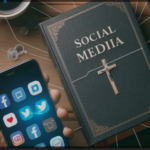 Stoneage to Digital Age: How Media Changes Religion with Jeffrey H. Mahan, PhD
Stoneage to Digital Age: How Media Changes Religion with Jeffrey H. Mahan, PhD
Wednesdays, 10:30 – 11:30 AM
The Oscar at Georgetown, Theater
In Person, On-Demand
In this course, Dr. Mahan demonstrates that religion is inextricably linked to art and media and is therefore always challenged by the rise of new media. Cave paintings, the printing press and literacy in the 1400’s, and other media right up to today’s digital media have prompted new ways to look at and think about religion. Dr. Mahan explores what that looks like in a culture shaped by digital communications, suggesting that people today have new understandings of religious identity, community, and authority and showing how that is playing out in practice.
Jeffrey H. Mahan studies, writes, and speaks about the intersection of religion, media, and popular culture. He is the Peck Professor Emeritus of Religion and Communication at Iliff School of Theology in Denver, CO and a fellow at the Center for Media, Religion, and Culture at the University of Colorado, Boulder. His books include Religion and Popular Culture in America and Media, Religion and Culture: An Introduction.
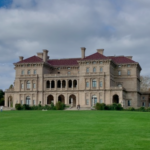 Mansions of the Gilded Age with Ellen Davis
Mansions of the Gilded Age with Ellen Davis
Wednesdays, 10:30 – 11:30 AM
The Oscar at Georgetown, 3rd Floor Meeting Room
In Person, On-Demand
Travel vicariously back to the Gilded Age and see how America’s first millionaires lived. Using publicly available photos, we’ll tour Gilded Age mansions that were used as city residences, country homes and summer homes, and learn about the people who built and lived in them. Topics covered will include how Gilded Age mansions were used to store some of the country’s most valuable artwork during World II, how Florida was developed as a winter resort for the wealthy during the Gilded Age, what happened to the art and furniture in Gilded Age mansions that no longer exist, how modern-day billionaires are restoring Gilded Age mansions, and which Gilded Age mansions you can visit today.
Ellen retired in 2021 after a long career in public relations and marketing for a variety of colleges and universities in Texas. She has lived in Georgetown since 2005. Ellen has had a lifelong interest in old houses and historic preservation. This is her third class for Lifelong Learners GTX.
 Create Your Own Course With Ron Snell
Create Your Own Course With Ron Snell
Wednesdays, 12:00 – 1:30
Ron Snell’s Home (email admin@lifelonglearnersgtx.com for address)
In Person
We all have things we’re curious about, so this is your chance to focus your curiosity on your own choice of topic. We’ll get together in an informal setting once a week just like the other courses this term, but our interaction will center on your chosen topics. The plan is to share what we’re learning, prompt each other with questions, suggest resources we’ve stumbled across, and follow the rabbit trails wherever they may lead.
We will meet at Ron Snell’s home just a few blocks from The Oscar after classes finish there on Wednesday. Bring lunch and eat while we meet. You don’t have to register for this course if you have already registered, but you do need to send Ron an email (admin@lifelonglearnersgtx.com) to let him know you are coming as space is limited to 8 people, and he will give you his address.
THURSDAYS
Shakespeare’s World with Jody Patterson
Thursdays, 9:00 – 10:00 AM
The Oscar at Georgetown, Theater
In Person, On-Demand
William Shakespeare was born during the Golden Age of the English Renaissance, a time of great change for England and the rest of the western world. This course explores this “brave new world” in which his genius blossomed, gifting us with a body of work that has spoken to people throughout the world for over 400 years. Note: this is a reprisal of the Winter 2024 course, with Macbeth replacing Romeo and Juliet as the topic of the final session.
A teacher at her core, Jody is passionate about learning from others and sharing what she has learned. In this course, she shares three of her biggest passions: the English Language, William Shakespeare, and the English Renaissance.
Spanish for Beginners with Ron Snell
First Session: Thursday, Jan 30, 9:00 – 10:00 AM (2 sessions)
The Oscar at Georgetown, 3rd Floor Meeting Room
In Person
If you know almost nothing about Spanish, this course is for you. If you know random bits and pieces of Spanish but don’t know how they fit together, this course might be for you. I use simple patterns, basic vocabulary, humor, and variety to introduce you to Spanish you can use right away. This class will meet twice a week.
The second session will be at Ron’s home, with the timing to be decided by class members during the first class. Enrollment is limited to 15 participants.
Ron was born and raised in Peru. He has also worked and lived in Mexico and Costa Rica. As a community service he has taught Spanish to adults in a variety of settings, including most recently for several years to expats in Costa Rica. His students regularly told him he was the best teacher in the country, undoubtedly flattering him because he was the cheapest and they didn’t want him to quit. Still…
Oil: From Its Origin to Your Tank with Tim Taylor, PhD
Thursdays, 10:30 – 11:30 AM
The Oscar at Georgetown, Theater
In Person
You use gas and other petroleum products every day, but have you ever wondered where it comes from? How they find it? How they get it out of the earth and into your car? How much of it there is in the world? Who owns it? The economics surrounding it all and the political implications? This course, offered by someone who has been in the industry for a lifetime, will answer those questions and more.
Dr. Taylor has BS, MS and PhD degrees in Petroleum Engineering and has 40+ years of experience in the industry, both domestic and international. He was also on the faculty of the Petroleum Engineering Department at The University of Texas at Austin where he won various teaching awards and is a Distinguished Alumnus of that department. He has also taught industry courses in the U.S. and internationally.
Readers’ Circle: Great American Short Stories with Susan Patterson
Thursdays, 10:30 – 11:30 AM
The Oscar at Georgetown, 3rd Floor Meeting Room
In Person
The short story is a genre often overlooked by modern readers. Yet virtually all of our greatest writers have turned to the form at one point or another and have left us a marvelous legacy, compressing great themes and ideas into little jewels of fiction. This course will be an interactive discussion each week of three stories from the American canon (the stories are generally only 5 to 12 pages long and Susan will provide free links to online versions). In class, she will present some background and context and then ask for your thoughts and perspectives on the stories. Come join this Reader’s Circle. Enrollment is limited to 20 participants.
Susan is a retired lawyer with an English degree from Duke University, and a law degree from Stetson University College of Law. She loves reading, travel, politics, music and learning new things. As a recent transplant from North Carolina, she is trying to adjust to life in the Lone Star State which includes teaching classes for LLGTX.
Introduction to the  Italian Language Session Two with Mike Damelio
Italian Language Session Two with Mike Damelio
Thursdays, 10:30 – 12:00 PM (90 minutes)
First Baptist, Room E 205
(This course meets twice a week. Register for the Tuesday class and plan to attend both.)
FRIDAYS
Fascinating Potpourri I
Fridays, 9:00 – 10:00 AM
San Gabriel Presbyterian Church
January 31: Early Settlers of Hutto, Wilco’s Fourth Largest City – Jon Stephenson (In-person, On-demand)
From 1843 to the coming of the railroad in 1876, the early settlers along Brushy Creek between Round Rock and Norman’s Crossing were families who made essential contributions to the political, economic, and social foundations of Williamson County. This presentation provides numerous fascinating and inspirational life stories of these pioneer families, Black and White, who helped found the city of Hutto.
-Jon Stephenson is a retired educator/professor, administrator, editor/writer, and historian for The Church of Jesus Christ of Latter-day Saints. He has a BA in Asian Studies from the University of Pennsylvania and a MA in Asian History from Brigham Young University. He moved to Hutto in 2020 to be near family. He currently serves on the Hutto Historical Preservation Commission and the Williamson County Historical Commission.
February 7: Georgetown Snakes: Cuddly creatures without legs – Jim Christiansen, PhD (In-person)
Jim Christiansen has a life-long attachment to a group of animals most people don’t like! In this session, he will explore these interesting and surprisingly intelligent animals that we live with in Georgetown.
-Dr. Christiansen is Professor Emeritus of Biology at Drake University and founder of The Snake Wranglers in Sun City. He is an author of more than 70 scientific publications and two editions of The Biology of Aging.
February 14: How We Know What We Know – Allister McNeish, PhD (In-person, On-demand)
This lecture will begin with the classic video, The Powers of Ten, which takes the viewer in 10 second intervals from the human scale to the scale of the universe’s one trillion galaxies each of 200 billion stars, then back to the human scale, and then to the scale of molecules, atoms and the elementary particles that make up our universe. Using layman’s terms and no mathematics, Allister will discuss: How do we know how big and how old the universe is? How do we know how small an atom is and what a proton is made of?
-Dr. McNeish holds a BS degree in Applied Physics and a PHD in Physics (Quantum Electronics) from Heriot Watt University, Scotland. He also did post-doc work in Lasers in Chemistry at the University of Newcastle, England. He worked in England and Wales before moving to the US where he was Product Developer, Isomet Corp., Springfield VA., and Engineering Fellow, BAE, Austin, TX.
February 21 and February 28: The Federal Reserve: History and Functions – Craig West, PhD (In-Person, On-Demand)
The Federal Reserve System was created on December 23, 1913, with the enactment of the Federal Reserve Act. It is the central bank of the United States and functions to promote the effective operation of the U.S. economy, and more generally, the public interest. Dr. Craig West will present 2 lectures: (1) the origins and structure of the Federal Reserve and (2) an overview of how the Fed implements monetary policy.
-Dr. West has an AB in economics from the University of Missouri and a PhD in economics from Northwestern University. He taught economics at the University of Maryland and Drake University. He spent 25 years with the Federal Reserve System in Kansas City and Chicago as a researcher and capital markets supervisor. He retired to Sun City in 2007.
March 7: Neurodivergent Skills – Miranda Rose (In-Person, On-Demand)
In this session, Miranda Rose builds off of her LLGTX Fall 2024 session on Neurodiversity Awareness. No prior experience with ADHD, autism, or learning differences needed! This engaging presentation explores adult learning theory from an inclusive lens and is based on current education research to support neurodivergent adult development. The presentation will teach practical skills, interesting facts, and unique perspectives on inclusive instruction. These accessible tips are tailored to improving the quality and ongoing love of learning.
–Miranda Rose holds a B.A. in Elementary Education, an M.A. in Education Leadership and is currently pursuing a doctorate in Education Leadership and Special Intervention Services at Wichita State University. Her passion is helping neurodivergent learners (ADHD, autistic, dyslexic, and cognitively creative thinkers) and their allies come together to learn differently.
Fridays, 10:30 – 11:30 AM
San Gabriel Presbyterian Church
January 31: Dr. Seuss Goes to War and Before! – Gregg Philipson (In-person, On-demand)
The presentation explores Theodore Geisel, aka Dr. Seuss, in his early years as a cartoonist working for Life and Judge Magazines, Esso Oil and others. It concludes in 1948 shortly after his service as a Major in the U.S. Army during WWII. It includes his work as a screen writer and his propaganda art. It is a fascinating look at the side of Dr. Seuss that is seldom seen.
-Gregg Philipson lectures internationally on the Holocaust and other Jewish related subjects including Jewish Military History and propaganda art. The “Gregg and Michelle Philipson Collection and Archive” is regularly exhibited at major museums, universities, colleges, schools as well as U.S. military installations.
February 7: Bitcoin Basics: The What, How and Why – Bill Dwyer (In-person) (90 minutes) 10:30 – 12:00 PM
Everyone has probably heard about Bitcoin/Crypto Currency but not many understand it. This session will help attendees understand Bitcoin’s brief history, use case going forward and discuss the question,“Is Bitcoin the future of money, the biggest Ponzi scheme in history, or something in between?”
-Originally from Chicago, Bill Dwyer has lived in Texas for 35 years and in Sun City since 2013. His career was spent mostly in the software business within the healthcare sector. He has been a hands-on investor focusing on stocks, EFT’s, and derivatives (option and futures contracts) for most of his adult life, and leads the Active Investors Special Interest Group in the Sun City Investment Education Club. (He is not a financial advisor.)
February 14: Ancient Near Eastern Ivory Carvings – Andy Dearman, PhD (In-person) (90 minutes) 10:30 – 12:00 PM
Research has produced marvelous collections of ivory carvings from the Ancient Near East. This illustrated presentation will show photos of examples from several millennia, including some from ancient Nimrud, an Assyrian city where Agatha Christie and her husband were excavators.
-Dr. Dearman is a retired professor with broad experience in archaeological projects in the Ancient Near East.
February 21: An Introduction to Alzheimer’s Disease and New Therapeutic Approaches – Michael Douglas, PhD (In-person)
This class will provide an introduction to the current status of research on the key causes of Alzheimer’s, the new therapies, including immunotherapy, that are being developed based on early diagnosis and how these therapies should work. Included will be a discussion in layman’s terms to the molecular and cellular biology of neurodegenerative disorders and new opportunities for therapy.
-Dr. Douglas is the executive director of the Georgetown Neuroscience Foundation, and has served as a director, chairman, chancellor or CEO at universities, nonprofit medical/science foundations, and a globally held medical company. He has also headed various biotechnology startups.
February 28: Wonderboy — the Hoover You Didn’t Know – Gerald Faulkner (In-Person/On-Demand)
How does a young boy orphaned at nine go on to become wealthy, serve his government in a number of roles, and rise to be the 31st President of the United States only to fall from grace?
-Gerald Faulkner has a BBA in Human Resources from City University of New York with a minor in History and has completed all courses for an MBA. He has taught numerous history courses for Lifelong Learners GTX.
March 7: Addressing Emerging Threats and Hazards to Texas – Adam Samuels (In-person, On-demand) (90 minutes) 10:30 – 12:00 PM
Homeland Security is a continuous, statewide effort to prevent, protect, mitigate, respond, and recover from terrorist and significant criminal attacks and natural and technological disasters. What are the threats and hazards now and what will they be in 2030 and beyond? Extremist groups? School Safety? Border issues? Artificial Intelligence? Drones? Pandemic? Extreme Weather? This class will introduce current and emerging challenges (and opportunities) to Texas and highlight some of the state’s multi-agency efforts to manage risk while safeguarding individual liberty.
-Adam Samuels is a Strategic Planner at the Texas DPS Office of Homeland Security in Austin TX. He collaborates with over 20 State Agencies to track implementation of the Texas Homeland Security Strategic Plan (HSSP). After more than 20 years in the US Navy, he was the Emergency Management Program Coordinator at the Texas National Guard HQ before joining DPS-OHS in 2022. Adam holds a BS from Texas A&M University and MA in National Security and Strategic Studies from the US Naval War College.
Now that you have seen some courses that interest you, click HERE to register for them. Remember: registration is just a starting point. Once you have paid the fee, you can attend any courses that catch your eye during the term. Just show up with your name badge.


